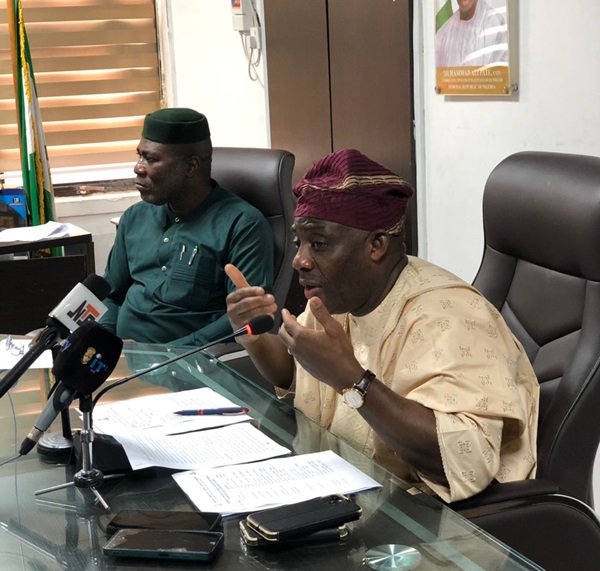
The Federal Government has rolled out a comprehensive set of reforms aimed at tightening the regulation of healthcare facilities across Nigeria.
This initiative was announced by during the inauguration of a Medical Laboratory Regulation and Inspection initiative in Abuja on Thursday. The reforms are a direct response to escalating concerns about unregulated and substandard healthcare services that have plagued the country’s health sector.
Alausa emphasised the critical need for stringent oversight, Minister of State for Health and Social Welfare, Dr. Tunji Alausa particularly in medical laboratories, which play a crucial role in the diagnosis and treatment of diseases. He highlighted alarming revelations about illegal kidney harvesting rings operating in Abuja and other regions, which have brought the issue of inadequate regulation to the forefront. The Minister stressed the necessity of enforcing strict regulations to safeguard the health and safety of Nigerian citizens.
“In light of the shocking discoveries regarding illegal activities in some healthcare facilities, it has become imperative that we enforce strict regulations to protect our citizens,” Alausa stated. “We are committed to ensuring that every laboratory in Nigeria provides validated and reliable results, which are crucial for making sound healthcare decisions.”
He disclosed that while doctors involved in the kidney harvesting scandal have faced sanctions, the hospital implicated in the scandal remains operational due to the lack of a legal framework to shut down such facilities. To address this regulatory gap, Alausa announced plans to establish a National Health Facility Regulatory Agency. This agency will be tasked with monitoring and regulating all healthcare institutions across the country, with the authority to shut down any facility that fails to meet the required standards.
“The establishment of this agency will be a significant step forward in our efforts to protect the health and well-being of Nigerians,” he continued. “We will ensure that the agency is equipped with the authority to shut down any facility that fails to meet our standards, thereby safeguarding the public from harmful practices.”
Alausa also called for collaboration across various government agencies to support the enforcement of these regulations. He mentioned ongoing partnerships with the police and other relevant bodies to ensure strict adherence to the laws.
“This government is united in its mission to provide comprehensive healthcare to all citizens,” he said. “We are not just drafting policies; we are implementing them and holding ourselves accountable to deliver results.”
As part of the regulatory reforms, the minister charged the Medical Laboratory Science Council of Nigeria (MLSCN) with leading the accreditation and monitoring of laboratories across the country. This initiative, according to Alausa, will serve as a model for broader regulatory efforts within the healthcare sector.
“Our goal is to instill confidence in our healthcare system, ensuring that every test result is accurate and every treatment decision is based on reliable data,” he urged the committee members.
The comprehensive plan has been met with cautious optimism from stakeholders in the health sector, who have long advocated for stronger oversight and better governance. The minister’s announcement is seen by many as a potential turning point in Nigeria’s quest to build a robust and trustworthy healthcare system.
Alausa tasked the committee with creating a functional inspection model, improving regulatory practices, strengthening inspection protocols and identifying sustainable funding sources. The MLSCN registrar, Prof. Tosan Erhabor echoed the minister’s sentiments, stressing the need to reassess and update the current standards for medical laboratory inspections.
“Over 70 per cent of medical diagnoses rely on laboratory investigations, highlighting the importance of accurate and reliable results,” Erhabor noted. He pointed out that current inspection models are plagued by poor monitoring, inadequate funding and misconceptions about the necessity of inspections.
The goals outlined by the minister and the MLSCN include developing a sustainable, cost-effective model for national laboratory inspections, improving quality management systems in medical laboratories, reducing health tourism by enhancing local diagnostic capabilities and combating quackery and unprofessional practices in laboratories.
Erhabor also called for the establishment of a technical committee to develop a policy framework to achieve these objectives, aligning with President Bola Tinubu’s ‘Renewed Hope’ agenda, which encourages innovative solutions to existing challenges.
The 15-member team leading this initiative is headed by the registrar and CEO of MLSCN. Its work will be pivotal in ensuring that Nigeria’s healthcare facilities operate at the highest possible standards, safeguarding the health of millions of Nigerians.

